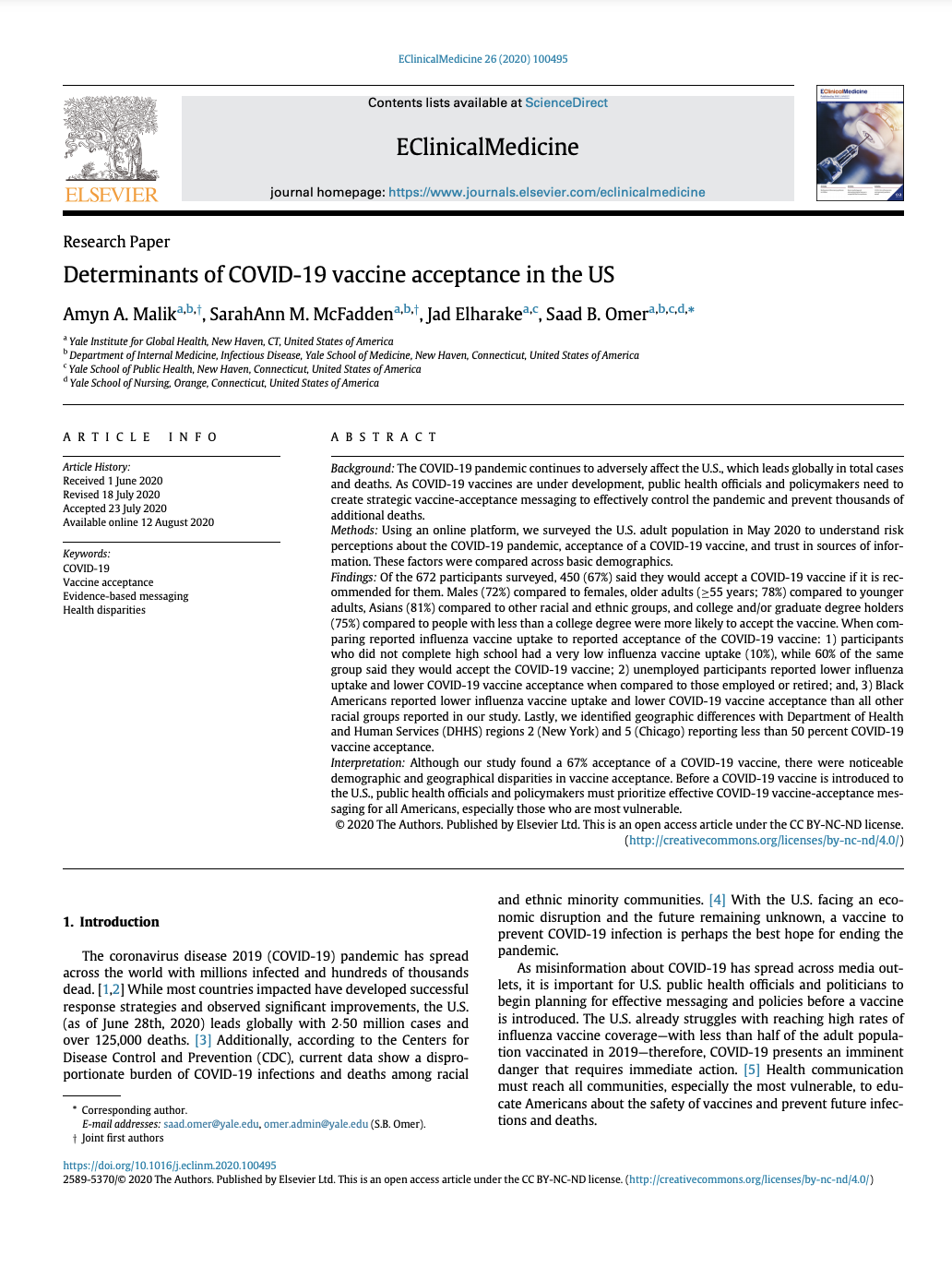Determinants of COVID-19 vaccine acceptance in the US
Description
The COVID-19 pandemic continues to adversely affect the U.S., which leads globally in total cases and deaths. As COVID-19 vaccines are under development, public health officials and policymakers need to create strategic vaccine-acceptance messaging to effectively control the pandemic and prevent thousands of additional deaths.
Using an online platform, we surveyed the U.S. adult population in May 2020 to understand risk perceptions about the COVID-19 pandemic, acceptance of a COVID-19 vaccine, and trust in sources of information. These factors were compared across basic demographics.
Of the 672 participants surveyed, 450 (67%) said they would accept a COVID-19 vaccine if it is recommended for them. Males (72%) compared to females, older adults (≥55 years; 78%) compared to younger adults, Asians (81%) compared to other racial and ethnic groups, and college and/or graduate degree holders (75%) compared to people with less than a college degree were more likely to accept the vaccine. When comparing reported influenza vaccine uptake to reported acceptance of the COVID-19 vaccine: 1) participants who did not complete high school had a very low influenza vaccine uptake (10%), while 60% of the same group said they would accept the COVID-19 vaccine; 2) unemployed participants reported lower influenza uptake and lower COVID-19 vaccine acceptance when compared to those employed or retired; and, 3) Black Americans reported lower influenza vaccine uptake and lower COVID-19 vaccine acceptance than all other racial groups reported in our study. Lastly, we identified geographic differences with Department of Health and Human Services (DHHS) regions 2 (New York) and 5 (Chicago) reporting less than 50 percent COVID-19 vaccine acceptance.
Although our study found a 67% acceptance of a COVID-19 vaccine, there were noticeable demographic and geographical disparities in vaccine acceptance. Before a COVID-19 vaccine is introduced to the U.S., public health officials and policymakers must prioritize effective COVID-19 vaccine-acceptance messaging for all Americans, especially those who are most vulnerable.
Additional languages

DETAILS
Publication
Authors
Emergency
Scope
Language
Region
Keywords

